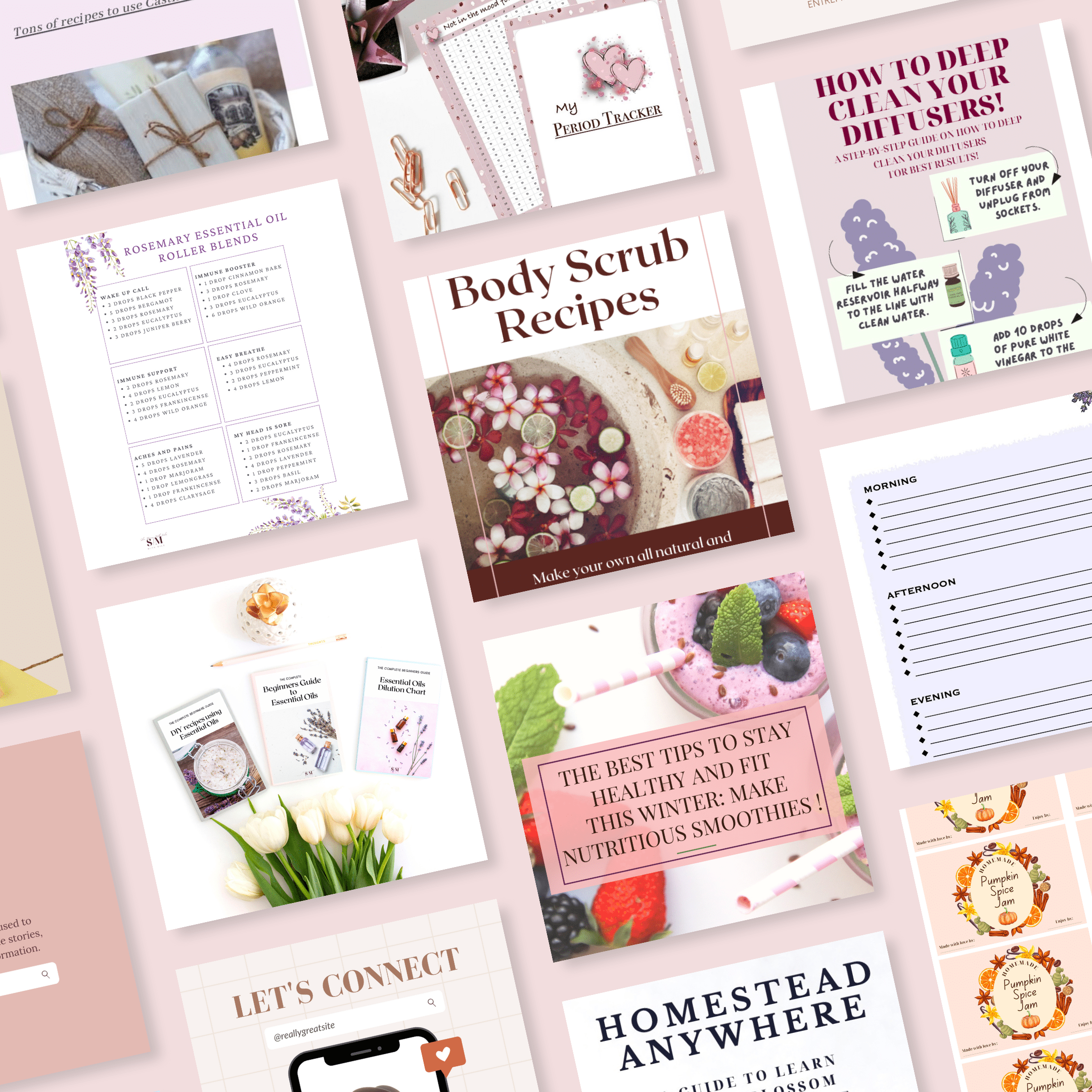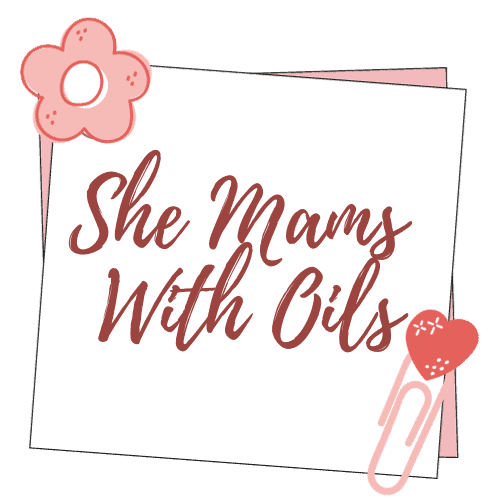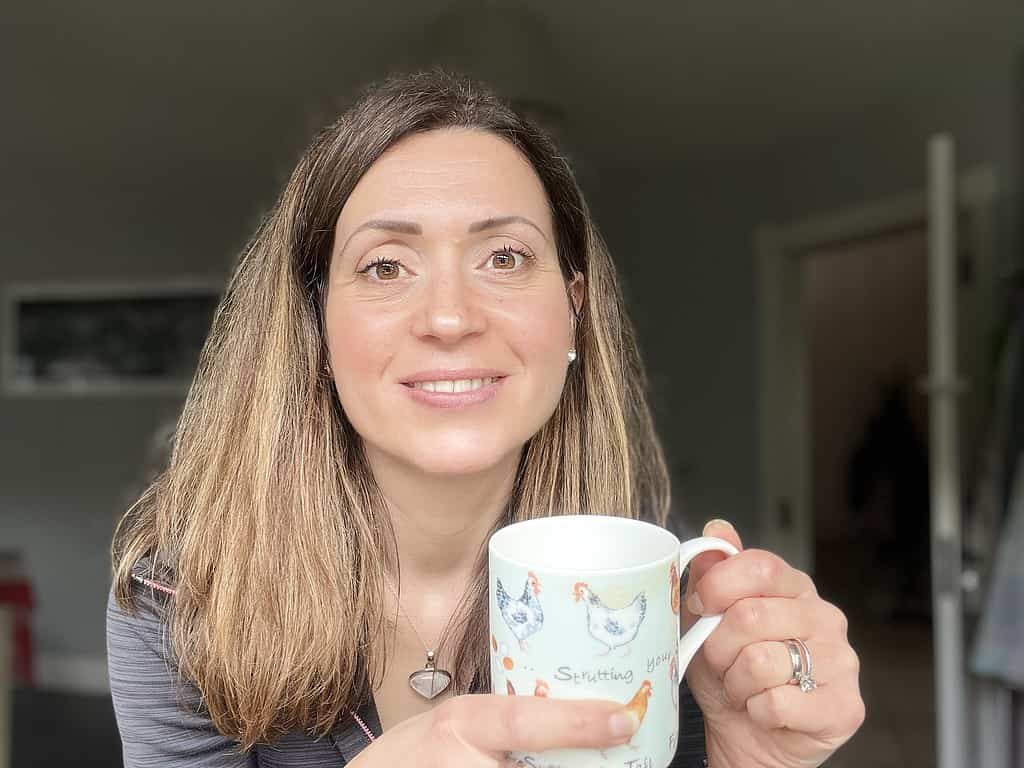ARE ESSENTIAL OILS SAFE FOR PLANTS?
Are essential oils safe for plants?
Not all essential oils are safe for plants. However, many oils can provide benefits such as:
- Keep your plants healthy,
- Give a shine to leaves;
- Keep away bugs and pests,
- Etc.
Read this post to learn how to use essential oils safely on your precious plants without risking to harm them.
Here I share what are the best essential oils for plants and their benefits.
Also, don’t miss the recipes!
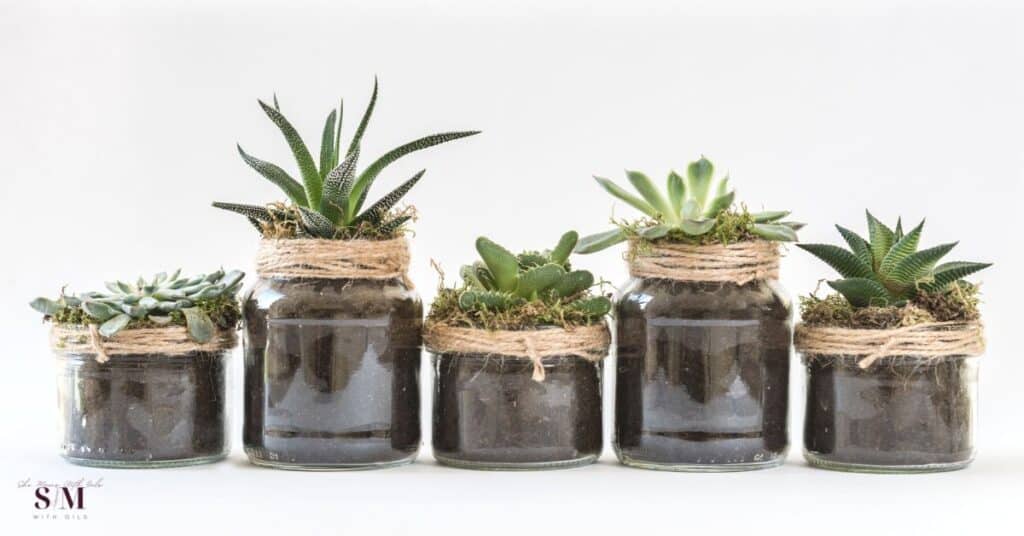
The following post may contain affiliate links, which means I’ll get a small commission if you decide to buy using the links provided. This will add NO EXTRA COST to you but it helps me to keep this blog up and running. Thank you. You can get more info by reading my Disclaimer page.
_________________________________________________________________
If you love gardening and looking after plants, but are unsure of how to get rid of commercially produced fertiliser and bug repellent, read on.
In this post I’ll explain how your plants can benefit from essential oils, and how you can use them.
ARE ESSENTIAL OILS SAFE FOR PLANTS?
If you are wondering whether essential oils are safe for plants, or whether “do essential oils kill plants?”, the answer is no, essential oils don’t kill plants.
However, that depends on what oils you decide to use.
Not all oils are safe around plants. Moreover, different essential oils will have different benefits.
This is exactly why I’m writing this post for you. I’ll show you how to use essential oil safely around your plants in order to get the most out of them.
important
Only use 100% unadulterated and pure essential oils, from a reputable company.
Never use essential oils topically unless properly diluted, and only use them after a patch test.
Particular attention should be paid by pregnant women, breast-feeding mums, older people and young children.
Some people might develop skin irritations or adverse reactions.
Never ingest essential oils without reading the label first, as not all oils can be consumed internally.
Always talk to your trusted medical practitioner and/or certified aromatherapist before using essential oils, especially if you suffer from any allergy, intolerance, are ill or are already taking any medication.
IMPORTANT: can you use essential oils on edible plants?
Not all essential oils are safe for internal use. That depends not only on the specific type of oil you choose, but also on its quality and purity.
Unfortunately many essential oils on the market are labelled as 100% pure and natural while in reality they are not.
Before using any oil on your plants, do your own research and make sure to buy from a reputable company. Select only 100% organic, unadulterated and pure essential oils.
Having said all that, you should avoid spraying oils on your vegetables, fruits and edible plants. It is the safest option.
In my opinion, it is best to avoid any possible risk of ingesting an oil that is not suitable for internal use.
For those types of plants, you can utilise essential oils to repel insects and bugs by using them on a cotton ball, cloth strip or stick instead (see my instructions below).
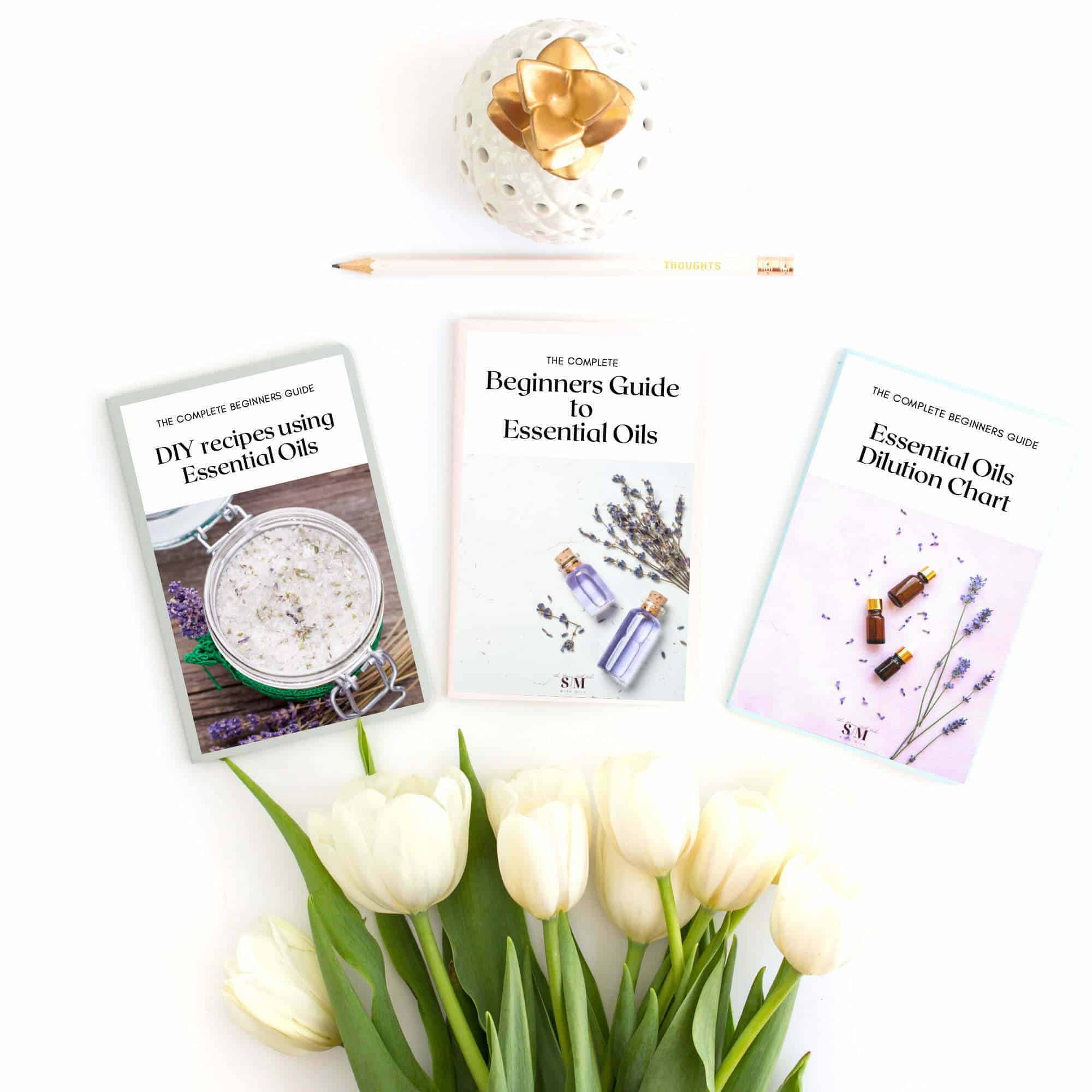
GET THE COMPLETE BEGINNERS GUIDE TO ESSENTIAL OILS!
Are you curious about what Essential Oils are, and what they can do for you and your family?
Did you know that EO have been used for centuries to help support our health and wellbeing?
If you want to learn more, I have created the perfect complete guide to beginners EO users. You can get it on my Etsy shop at a special introductory price.
HOW DO essential oils benefit plants?
Essential oils can benefit your plants in a variety of ways.
For example, they can:
- Help keep bacterias and germs away;
- Fertilise plants naturally;
- Benefit pollinators, and therefore your garden;
- Repeal some harmful insects;
- Help prevent weeds growth;
do essential oils help plants grow?
Do oils help plants grow? I think the jury is still out on this question. Some sources rightly suggest that essential oils cannot promote plant growth cause they are not nutrients, strictly speaking.
However, according to this article:”Using essential oils on plants is beneficial for their growth and development. Essential oils like thyme, clove, rosemary, lavender, yarrow, catnip, basil oil, and peppermint are considered great for plants.
Using essential oils help in the prevention of annoying pests and also encourages plants’ growth.”.
Can essential oils keep bugs away from plants? What essential oil do most bugs hate?
Essential oils can certainly help you to keep bugs and pests away from plants and your garden in general.
There are many oils that will do that.
Below I’m providing a list with the best essential oils you could use.
Also, if you are specifically looking for what works best to repel bugs and insect, you should definitively check this extensive post!
What oils are safe to spray on plants? And what essential oils can be used in the garden?
There are indeed several oils that can be used safely and effectively on plants.
Let’s have a look at my favorite essential oils for the garden.
ROSEMARY ESSENTIAL OIL
What does rosemary oil do to plants? Well, the strong scent of rosemary is excellent at keeping bugs (….. and cats!) away from plants.
It can also attract pollinators and butterflies.
Can you spray rosemary oil on plants?
Yes you can. Rosemary is very effective when sprayed directly on plants. Simply spray a few drops on the plant to keep bugs away and to prevent them from chewing up the leaves.
I’ll show you how to make an effective plant spray later in the post, so make sure to keep reading!
THYME ESSENTIAL OIL
Another excellent one! Thyme oil helps fighting pests and bugs.
CLOVE ESSENTIAL OIL
Clove oil can naturally help fight harmful fungal growth. It also helps against some pests such as ants and wasps.
In addition to that, Clove oil can also kill weeds.
EUCALYPTUS ESSENTIAL OIL
Eucalyptus is quite a strong oil. Its powerful scent is very effective at repelling pests and bugs naturally. It is particularly helpful during the warmer months as it effectively repels ticks.
Will eucalyptus oil hurt my plants? Can I spray eucalyptus oil on my plants?
Yes you can. According to this article, you could: “Make a repellent spray by adding 1/4 teaspoon of eucalyptus oil to one cup of water in a spray bottle […]. Shake well to mix, and apply to plants or other areas of the garden where insects have been seen. The oil will separate from water, so shake before each application. Spray should be reapplied every three days.”.
TEA TREE ESSENTIAL OIL
Tea tree oil is widely known for its anti-fungal, anti-bacterial and anti-viral properties. When used in gardening, it can help prevent fungal infections on plants, or mould and mildew build ups on the areas around plants.
This essential oil is also effective against ants, flies and ticks.
Will tea tree oil hurt plants?
If using, pay attention not to overspray plants! In fact, tea tree oil can burn them.
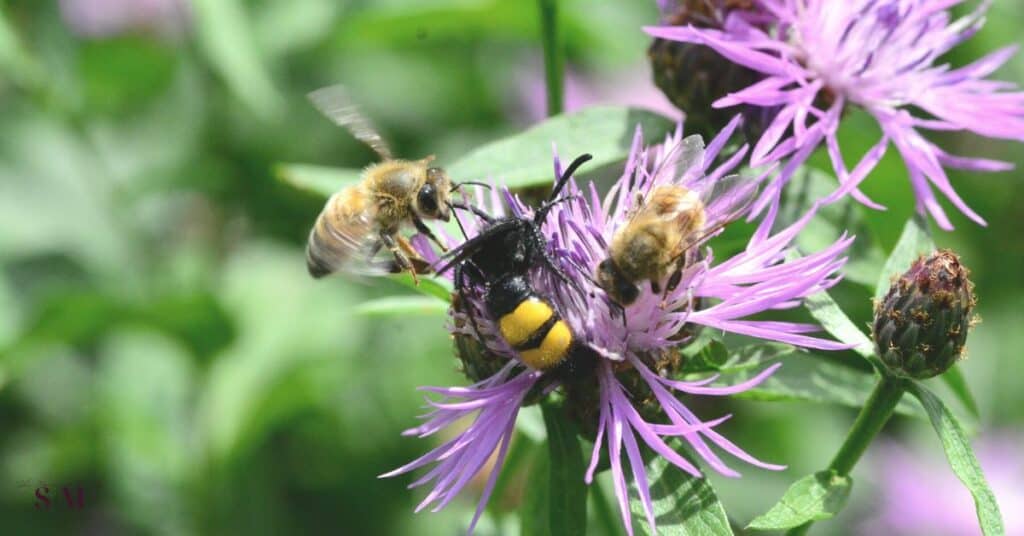
LAVENDER ESSENTIAL OIL
Lavender is an incredible oil, beneficial to you, your animals and plants in so many different ways.
When used in gardening, lavender oil (just like lavender plants) attracts pollinators and at the sane time repels many harmful insects.
FENNEL ESSENTIAL OIL
An oil with the ability to attract pollinators, thanks to its lovely aroma.
MARJORAM ESSENTIAL OIL
If it’s bees you are trying to attract in your garden, then this oil is a very good choice for you.
HELICHRYSUM ESSENTIAL OIL
Helichrysum oil is a very expensive one, so it’s probably not your first choice when it comes to an essential oil for the garden. However, it can be beneficial when it comes to attract pollinators.
BASIL ESSENTIAL OIL
Basil will help you to keep insects away from your plants, as well as to attract pollinators.
WILD orange essential oil
Orange oil (just like all the citrus oils) not only smells amazing, but it’s an excellent choice for plants. It can attract butterflies and bees in your garden. It works very well when mixed with peppermint, rosemary and lavender.
cinnamon bark essential oil
Cinnamon is a very strong anti-viral, anti-fungal and antibacterial oil. When used on plants, it can repel unwanted pests and bugs and smells so lovely!
Spray it freely in order to kill weeds too.
Why do people sprinkle cinnamon on plants?
If you don’t have cinnamon oil, there is an easy alternative: use cinnamon powder instead!
According to this post:”Damping off disease is a fungus-based problem that hits small seedlings just as they begin to grow. Cinnamon will help prevent this problem by killing the fungus. It also works with other fungal problems exhibited on older plants, such as slime mold and with deterring mushrooms in planters.”.
Simply sprinkle a little cinnamon powder on the soil to prevent fungal disease and growth.
PEPPERMINT ESSENTIAL OIL
This fresh and cooling oil is probably one of the most commonly used on plants.
Indeed, peppermint oil can keep a lot of different types of bugs and pests away from your garden or indoor plants.
If you spray it in the garden, peppermint can help to repel mice, squirrels and moles!
SPEARMINT ESSENTIAL OIL
Spearmint oil is very similar in aroma to peppermint. As a consequence, the two oils work similarly on plants.
CEDARWOOD ESSENTIAL OIL
An often underestimated oil, cedarwood has a pleasant and calming woody scent. It can act as a natural repellent against pests and bugs.
arborvitae ESSENTIAL OIL
Just like Cedarwood, Arborvitae is a less common oil. Despite that, it is very effective at repelling bugs, especially those pesky fruit flies that can gather around your fresh produce in summer.
PATCHOULI ESSENTIAL OIL
Patchouli is an oil commonly used in the perfume industry and in personal care products. Its pleasant aroma can work effectively at repelling bugs and pests and can also stop fungal growth.
CITRONELLA ESSENTIAL OIL
Citronella is probably the most known oil when it comes to repel practically every type of pest or bug known to mankind!
I sure remember my mother using it in then summer when I was little. She used to buy this citronella infused candles and would light them in the evening to keep mosquitoes away form our home.
This natural insect repellent works very well against mosquitoes, flies, fleas, spiders, ticks, ants, and more.
GERANIUM ESSENTIAL OIL
Excellent insect repellent, thanks to its lovely scent. It can also attract pollinators.
In addition to that, just a drop of geranium oil in a vase with fresh flowers, can prolong their life! Just fill the vase with fresh water and add one drop of this oil. Mix well before placing your fresh flowers in it.
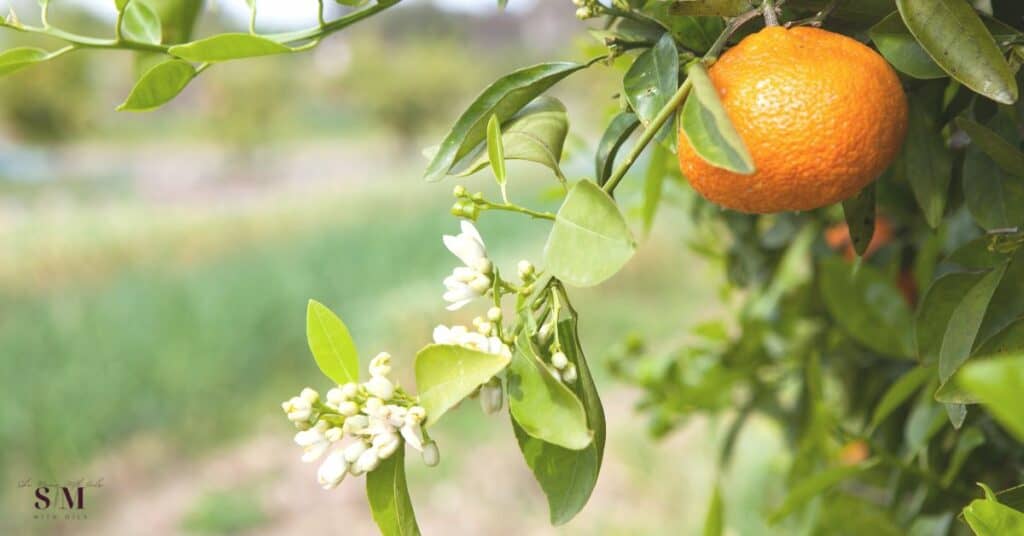
NEROLI ESSENTIAL OIL
This oil is derived from the orange blossoms and it is excellent at attracting pollinators.
OREGANO ESSENTIAL OIL
Oregano is a very powerful anti fungal and antiviral. It can help in preventing fungal growth in the garden and can keep mosquitoes and carrot fly (and other types of flies) away.
HOW TO USE ESSENTIAL OILS IN THE GARDEN? How do you apply essential oils to plants?
After having listed what are the best essential oils for your garden, it is time to see how you can actually use them.
There are several methods.
You could make up and use:
- A DIY essential oil spray;
- Cotton balls;
- Cloth strings;
- Lollipop sticks.
IMPORTANT: Always wear gloves when working in the garden!
MAKE A DIY ESSENTIAL OIL SPRAY FOR PLANTS
If you are asking yourself: “How do you make an essential oil spray for plants? Do I mix essential oils with water?”, fear not, cause I have the answer for you!
Making a DIY spray for plants is very easy and quick.
Just grab a bottle with a spray top and add a few drops of your favourite essential oil or blend. Top up with filtered or cooled boiled water. Shake well to mix and before each use.
For best results, simply spray on the plants once or twice daily, preferably in the early morning and again in the evening.
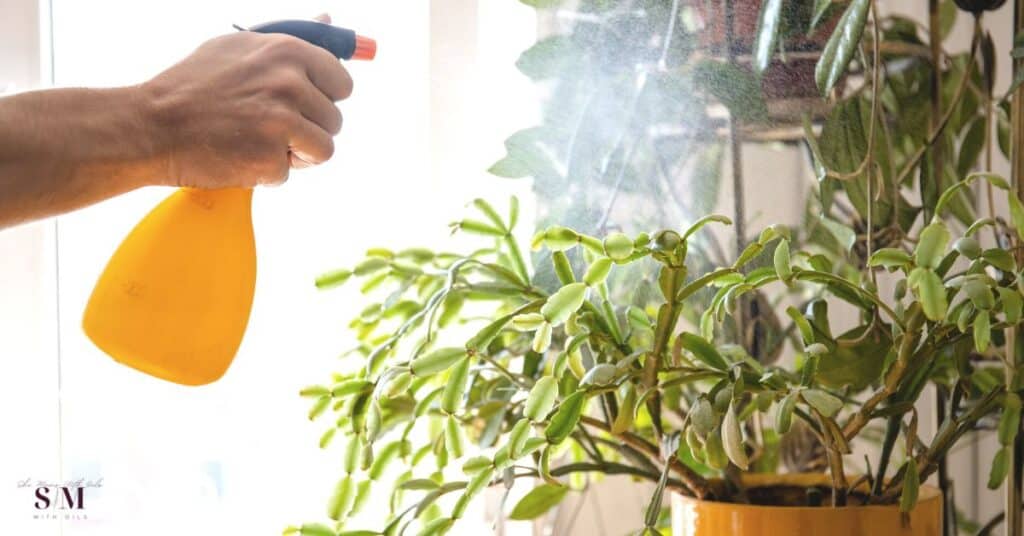
What oil do you spray on plants?
Depending on the goal your are trying to achieve, have a look at the list I provided above, and choose the right essential oil or blend for you.
For example, if you are trying to keep cats away form your plants, use rosemary oil.
On the other hand, if you are using essential oils to prevent ticks in summer, choose eucalyptus oil.
How do you dilute essential oils with water for spraying? Can you mix essential oils with just water?
Essential oils are very powerful so it is very important to dilute them correctly.
For a large glass spray bottle of around 200-250ml, do not use more than 5 drops of oils in total.
A little really goes a long way!
In addition to that, if you are making up a large bottle, I’d advise to swap the water for witch hazel instead. Water spoils very quickly, while witch hazel will last much longer.
In fact, if using water for the DIY spray, discard the contents after 2 weeks max. On the other hand, if using witch hazel, discard after a month max.
IMPORTANT: WHAT TYPE OF PLASTIC IS SAFE FOR ESSENTIAL OILS?
If you are using a plastic bottle for your DIY essential oil spray (such as an old bottle from a cleaning product), remember to check the bottom for the info on the materials used to make it.
In fact, not all plastic is safe to be used with essential oils!
What should not be mixed with essential oils?
It is very important to remember that, when using essential oils for your plants, you should only mix them with water or witch hazel.
Never use an oil straight from your kitchen, such as olive oil or vegetable oil you have already used to cook.
Those cooking oils can potentially harm your soil and therefore your plants.
Can you put essential oils on cotton balls?
If the essential oil bug spray is not an option, you can grab a cotton ball and place a few drops of essential oil on it. Place the cotton ball near your plants in order to repel bugs and pests.
This method is probably not a good option for outdoor use, where children and pets could easily get in contact with the cotton balls.
In fact, essential oils have the potential to cause skin irritation if not used correctly. They could also cause an allergic reaction and other side effects.
Furthermore, kids and furry friends could ingest the cotton balls!
ESSENTIAL OILS CLOTH STRIPS
If you are afraid of using essential oil sprays on your plants, you could try this handy alternative.
Simply cut some strips from an old piece of clothing (an old T-shirt, towel or bedsheet will do) and apply a few drops of essential oils on it. Hang nearby your plants (for example hang from a tree branch) for an effective natural repellent.
ESSENTIAL OILS LOLLIPOP STICKS
A fun idea for an activity you can do with the help of your children.
You can reuse a lollipop stick (after having washed it and let it air dry), or simply buy in bulk from a craft store.
Use a few drops of essential oils on the stick and then place it in the garden soil near your plants. This method works very well for both outdoor plants and house plants.
What can I put on my plant leaves to make them shine?
Have you ever stopped in front of a store and wondered: “how do florists make plant leaves shiny?”. Well, I have!
Thankfully you don’t need to rely on expensive and toxic products to achieve that shine. Simple household ingredients will do the trick!
use milk and water
In a small bowl, mix together equal parts of milk and water. Dip a clean cloth in the mixture, and use it to wipe your plant’s leaves.
use Castile soap and water
Alternatively, you could use some warm water with a few drops of Castile soap. Prepare the mixture in a little bowl, and use a cloth dipped into the soapy water to clean the plant leaves. Make sure to apply the mix gently on the plant.
For this recipe, I’d recommend to use only pure Castile soap. Commercially produced soaps can be very harsh on your plants so it is best to avoid them. Castile soap on the other hand, is very gentle.
use mayonnaise
Using a paper or kitchen towel, you could rub mayonnaise gently on your plant leaves. This method not only provides a lovely shine, but also helps in keeping dust away from the leaves!
Are essential oil diffusers safe around plants?
Although I love to have my diffusers running at home, they can indeed cause some harm to plants.
Using oils such as arborvitae or rosemary or eucalyptus in your diffuser can be very beneficial to repel bugs naturally at home. However, you should keep the diffuser away from plants, just to be sure.
The best place for your diffuser is in the middle of a room, away from direct sunlight and heat (do not put a diffuser near a radiator).
are essential oils safe for plants? CONCLUSIONS
Essential oils can certainly have a positive effect on you and your home. If you love to look after plants or if you are lucky enough to have a garden, you should definitively give essential oils a try!
They can provide a totally natural alternative to the harmful chemicals contained in store bought products, such as bug repellents and fertilisers.
Have you ever used essential oils on your plants? If so, please feel free to leave a comment below. I’d love to hear from you.
Till next time, Dee.
IMPORTANT
When using Essential Oils, make sure to use only CPTG Certified, Pure, Tested Grade ones, like Doterra Essential Oils. The content of this blog post and any information provided here has not been evaluated by the FDA (Food and Drug Administration), any government entity or medical practitioner. It is NOT intended to diagnose, treat, cure or prevent any disease, illness or condition. It is NOT intended to be a substitute for medical counselling. If you are pregnant, breastfeeding, or suffering from any medical condition or illness or injury, you SHOULD consult a qualified healthcare professional before using any product.
Hi, I’m Dee!
Mom of three; printables creator, natural solutions, simple living and homemade food enthusiast; “Outlander” fanatic.
When I’m not busy writing and designing, you can always find me covered in a cloud of flour in the kitchen, playing and crafting with my children, or making up some blends with my Essential Oils. Also I’m practically obsessed with Crystals and reading during my spare time.
Come along on our crazy journey as a family living in the countryside of Ireland!
